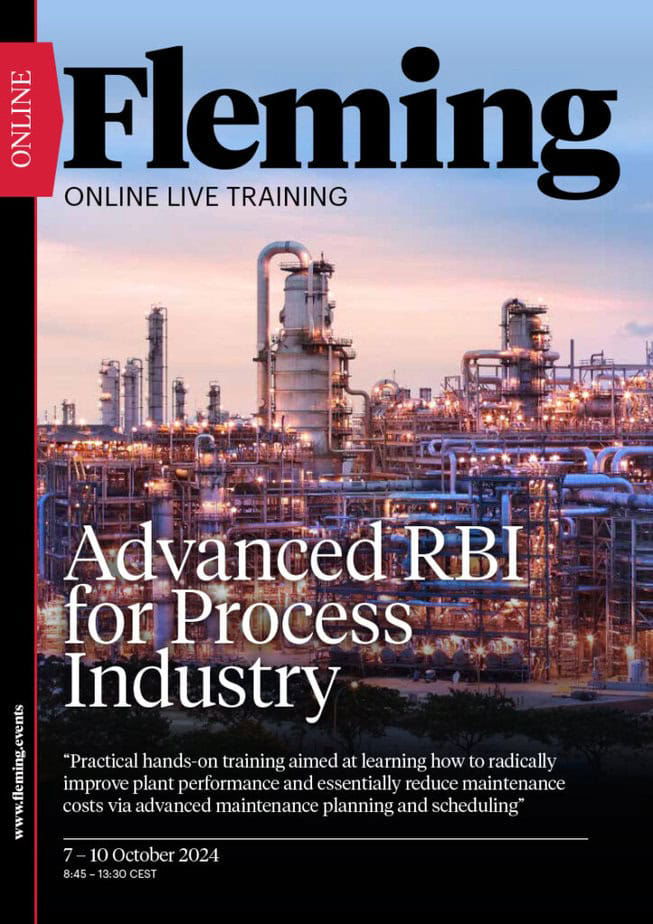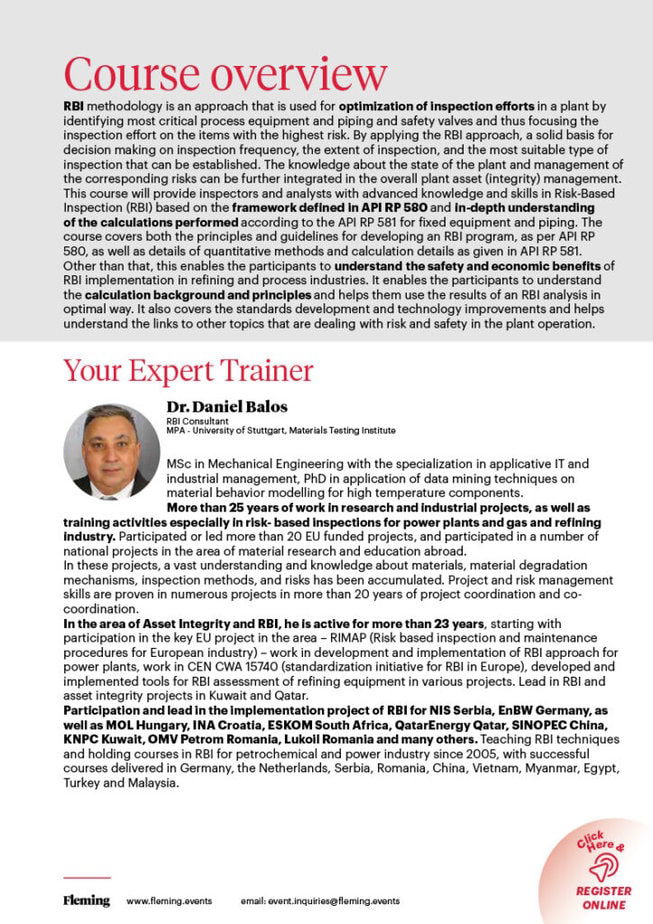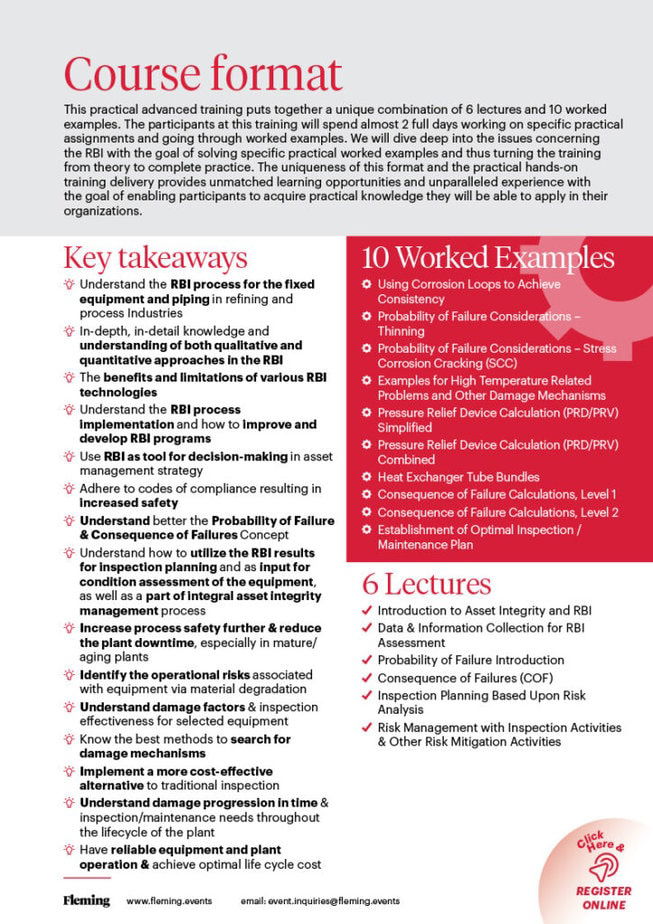Course description
RBI methodology is an approach that is used for optimization of inspection efforts in a plant by identifying most critical process equipment and piping and safety valves and thus focusing the inspection effort on the items with the highest risk. By applying the RBI approach, a solid basis for decision making on inspection frequency, the extent of inspection, and the most suitable type of inspection that can be established. The knowledge about the state of the plant and management of the corresponding risks can be further integrated in the overall plant asset (integrity) management. This course will provide inspectors and analysts with advanced knowledge and skills in Risk-Based Inspection (RBI) based on the framework defined in API RP 580 and in-depth understanding of the calculations performed according to the API RP 581 for fixed equipment and piping. The course covers both the principles and guidelines for developing an RBI program, as per API RP 580, as well as details of quantitative methods and calculation details as given in API RP 581. Other than that, this enables the participants to understand the safety and economic benefits of RBI implementation in refining and process industries. It enables the participants to understand the calculation background and principles and helps them use the results of an RBI analysis in optimal way. It also covers the standards development and technology improvements and helps understand the links to other topics that are dealing with risk and safety in the plant operation.





